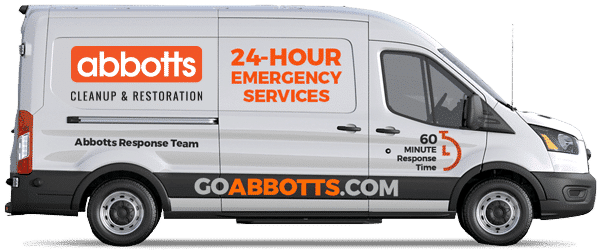A few good questions will help you avoid unnecessary repair bills in times of chaos.
The following story is a cautionary tale.
In addition to these questions that you should be asking to ensure you hire a professional water restoration company, you also need to understand what is covered by insurance. Typically, your homeowners policy will cover water damage but it depends on the nature of the incident and there are often limits that selected when you purchased the policy. Additionally, if damage is caused by the actions of another – like an appliance installation specialist or routine city maintenance – you may be covered under their policy. A few good questions will help you avoid unnecessary repair bills.
What is covered by insurance?
Most homeowners insurance policies will cover damage caused fire, storms, theft and vandalism. Sometimes floods and earthquakes are excluded.
Dwelling coverage. Pays to repair or rebuild your home – including electrical wiring, plumbing, and heating and air conditioning – if damaged by a covered cause of loss. It’s important to buy enough dwelling coverage to cover the cost to rebuild.
Personal property coverage. Reimburses you for the personal items in your home that may be damaged or destroyed by a covered cause of loss, which could include your furniture, clothes, sporting goods and electronics.
Loss of use coverage. Pays your additional housing and living expenses if you must move out of your home temporarily while it’s being restored.
It’s important to understand your deductible as well as what your policy may and may not cover. Are you covered if your roof leaks? Your gutter overflows? A pipe bursts under your sink? Your hot water heater leaks? Your washing machine hose breaks? How well is your dwelling covered? What about your possessions?
The questions are much the same if you are dealing with third-party liability insurance from an installer or, as in the cautionary tale above, the local municipality. Be sure you ask a lot of questions so you don’t get stuck holding the bag!
Here are few common water-damage scenarios and likely insurance consequences. Be sure to talk with your insurance agent to understand your policy coverage!

Scenario No. 1: The temperature drops below zero which causes your pipes to freeze and burst.
You should be covered for water damage from burst pipes as long as you haven’t left the house unoccupied and without heat. If that’s the case, you might be denied because you failed to take the necessary steps to prevent the damage.
Scenario No. 2: Your toilet overflows and floods your living space.
The damage to the toilets, sinks, tubs and dishwasher as well as the water damage to home furnishings should be covered by your homeowners policy if it is determined to be “sudden and accidental” (and not caused by sewer blockage. Sewer blockage is only covered if you purchase supplement coverage.)
Scenario No. 3: Your washing machine overflows and floods the basement.
This one gets a little tricky. Did you fail to maintain the washer properly or did sudden, accidental damage cause the flood? Typically water from a broken appliance will be covered as long as it is “sudden and accidental.” A small leak in your icemaker hose that went unnoticed, for example, would not be covered since it would be due to negligence on the part of the homeowner.
Scenario No. 4: A sewer backs up which floods your basement.
Unfortunately, standard home insurance policies do not cover sewer backups; many policies specifically exclude damage from sewer back-ups. Special endorsements are available, at added cost, for sewers and drains.
Scenario No. 5: Water seeps from the ground into your basement, damaging your foundation and interior.
Seepage is considered a maintenance problem, not “sudden and accidental” damage, and is excluded from home insurance coverage.
Scenario No. 6: During a heavy rainstorm, water leaks through your roof. The roof is damaged, as is furniture.
The water damage to your home should be covered as well as damage to your furniture. Roof repairs are not likely to be covered as that would fall under home maintenance. If your neighbor’s tree fell on your roof during the storm, for example, and caused the damage, then the roof repairs would also be covered.
How much will the restoration cost?
Home repairs can be an expensive proposition. Understanding cost is important for obvious reasons. The leak could be getting worse with each passing minute. Standing water and moisture can begin to cause damage immediately. The longer it goes untreated, the more difficult – and the more costly – the repair process can be.
Billing disputes with restoration contractors often involve a common scenario – a water loss prompts an insured’s frantic call to a mitigation company for emergency services. The vendor retained completes the dry out and bills the insured for the work per the contract. The adjuster assigned to the claim receives a bill that is significantly higher than expected.
One area to look at closely is code upgrades, particularly if you live in an older home. Most home insurance policies don’t cover the expense of bringing the house up to current codes if the structure didn’t meet the latest regulations before disaster struck. Building codes vary by community and if you have an older home, it can be quite costly to bring it up to code.
Additionally, in a high-pressure situation it may be difficult to compare quotes in a rational manner. That’s why Abbotts takes this out of the equation by using pricing guidelines that are independently established by the nation’s largest restoration estimating software company, Xactimate. Xactimate pricing is recognized and accepted as an industry standard by many of the largest insurers and the majority of all insurers. Every item performed on a project is listed in detail and agreed upon by customers and stakeholders so that there are no surprises. Deviations from the established pricing are documented for your adjuster’s review and approval in the event the particular item of repair is uniquely different from established norms or expected complexity.
Can you bill my insurance company directly?
What this question does is help you understand what mitigation and repair costs you will need to fund out of pocket. A reputable restoration company should have working relationships with major insurance carriers and will work with them to coordinate your coverage and their services as well as invoicing. They will let you know what services, if any, are recommended but not covered by your insurance. In most cases, you will only be billed for your deductible.

